Though security systems are supposed to protect businesses and homeowners alike from security threats, they have often become risks in their own right during recent years thanks to the unwanted attentions of malicious hackers. And one of the most often compromised systems is camera-based surveillance. According to security firm Norton, more than 50 percent of consumers have suffered from some sort of cybercrime, and Broadcom discovered that 15.2 percent of Internet of things (IOT) breaches occurred through surveillance cameras.
It’s not just large and small businesses who suffer from such invasions. Individuals have also faced online intrusions through video devices, sometimes with dramatic results. Much publicized stories about compromised baby monitors involved strangers speaking to sleeping tykes through the technology and using the device to examine the surrounding area.
While some cyberattacks, such as recent intrusions aimed at the UK’s Defense Academy, are sophisticated efforts, most online criminals exploit common missteps to gain access to your surveillance system. In this post, we’ll discuss some industry-standard ways to safeguard your surveillance system and answer common questions about the topic.

Keep your system´s firmware up to date
Every piece of computer-driven electronics has certain fundamental tasks that it needs to execute every time it’s powered on. Permanent software called firmware helps the device do so. However, hackers like to try to exploit vulnerabilities at a firmware level. There’s no such thing as a hack proof security system, but reputable manufacturers try to regularly provide firmware updates, and many systems include automatic firmware updates. Turn on that setting for your cameras if you have it or manually update your system’s firmware on a regular basis if you don’t.
Change your system´s password regularly
According to the industry periodical Security, “password reuse remains rampant, with 53 percent of people admitting they use the same password for different accounts.” Should hackers gain access to one of your accounts with a common password, it becomes easy for them to compromise other accounts. Vary your passwords, and try using a strong, random-password generator such as LastPass to create them.
Set up two-factor authentication
Having a password compromised needn’t be the end of the world if you have two-factor authentication (2FA) enabled. While there’s no such thing as an unhackable home security system or unhackable outdoor security cameras for businesses, 2FA helps any system come close. 2FA requires you to verify your identity by completing a second step when you log in to your security system. Sometimes this may involve providing biometric data, but more often you’ll need to input a code you’ll receive on your smartphone.
Set up WPA2 security on your router
While security camera vulnerabilities can compromise your system, routers typically represent a greater risk. Broadcom has stated that “infected routers were the source of 75% [recognized] attacks.” Do you ask, “Can wired security cameras be hacked?” If they’re somehow connected to a compromised router, the answer is a resounding, “Yes!” The best way to ensure their safety is to switch from outdated WEP encryption to WPA2 or (if available) to the newer WPA3 standard.
Regularly check login logs
Most security cameras and most security systems compile records of who has logged in and when it happened. If you periodically peruse this system-generated list and see a name you don’t recognize, there’s a good chance your system has been compromised.
Never share your main username and password
Giving out your username and password is even worse than simply using the same one for every online account. Why? Sharing your login credentials opens up an exponentially greater number of opportunities to compromise your account. If you really need to grant access to third parties, give them their own separate usernames and passwords.
Prevent surveillance systems from sending information to third parties
If you are wondering how to secure IP cameras, you should know about potential information pipelines to third parties. For instance, many security systems maintain a connection to their manufacturer’s servers. While this is ostensibly designed to improve customer service and production quality, it can also be exploited by online criminals. To circumvent this, consider assigning a static IP address for each camera and leaving the gateway section for the cameras blank.
Disable features you don’t use
Are there features on your security system that you don’t know much about or that you don’t fully understand? Disable them ASAP. Such features may be vulnerable to intrusion when left active — and you’re not using them anyway!
Never use a public network
High on the hacked home security cameras list are systems that are connected to a public network. Public networks are designed to throw wide the proverbial doors to any and all who want to access them, which is exactly what you don’t want to have happen with your security system. Keep your system on a private network.
Limit non-approved devices
One way to guard against hackers making even the smallest advances toward attacking your system is to limit the number of devices that can interact with your cameras. Making it so that non-approved devices cannot interface with your system will greatly improve your security.
FAQs
While the above steps will help you safeguard your cameras and security systems against hacking attempts, they are far from comprehensive. In this section, we will answer several commonly asked questions related to surveillance and hacking attempts.
“Is my surveillance system vulnerable to hackers?”
Sadly, the answer to this question is always yes, at least if you haven’t taken the above steps. As Camect’s Arup Mukherjee explained to Consumer Reports, “All security cameras are vulnerable. The brand of camera and how it is set up on the network are the most important risk factors.” However, if you implement our counsel, you’ll go a long way toward having an effective and safe surveillance network.
“What should I do if I suspect I’ve been hacked?”
If you’ve moved beyond wondering how to tell if your security camera has been hacked and now suspect that your system is compromised, the first thing you should do is power down the system. Then you ought to change all passwords and install all manufacturer-provided security updates.
“Why are surveillance systems vulnerable to hackers?”
Virtually all surveillance systems are connected to the internet in some way, shape, or form. This means that they face some amount of intrusion risk, no matter how small.
“Can home surveillance systems be hacked?”
Yes. Any system connected to the internet can theoretically be hacked.
“How can I set strong passwords?”
Microsoft makes the following suggestions regarding setting strong passwords:
- At least 12 characters long but 14 or more is better
- A combination of uppercase letters, lowercase letters, numbers, and symbols
- Not a word that can be found in a dictionary or the name of a person, character, product, or organization
- Significantly different from your previous passwords
“How often should I change my passwords?”
While there’s no agreed-upon rule as to how often you should change your password, many security experts believe there’s no need to change a strong password unless it’s been compromised.
For more help with security your surveillance system, contact us here at AT&I Systems, Florida’s trusted partner in protection!


















